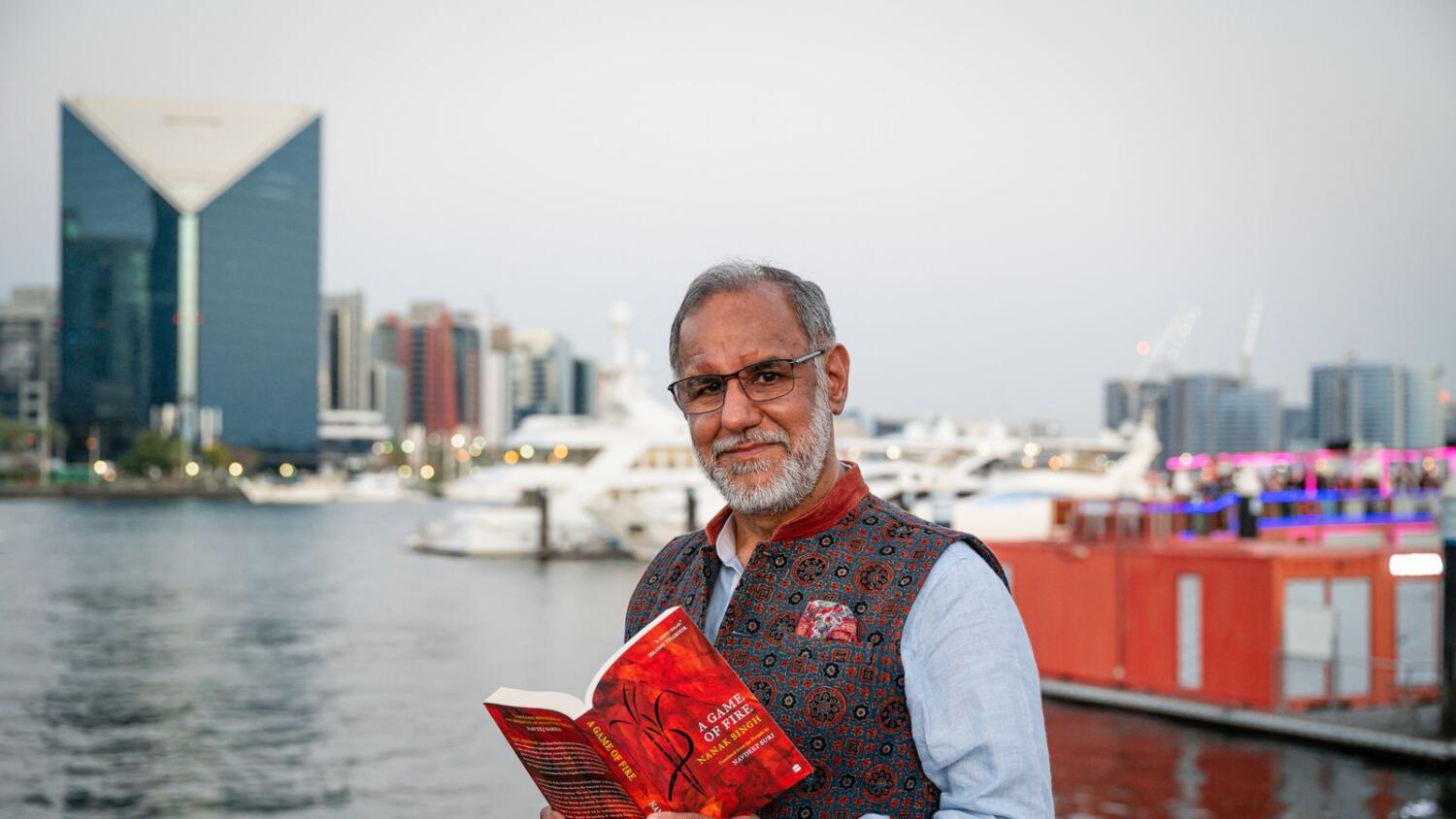A former Indian ambassador to the United Arab Emirates reflects on his grandfather's legacy: "People learned Punjabi so they could read his novels."
- byAdmin
- Jul 1, 2024
- 1 year ago

How are the Indian independence struggle perceived by the youth? Although the memories of that arduous journey towards liberation have been told on TV, in movies, and in books, the literature of the era provides a more realistic picture of what life was really like during that time under colonial authority. During that period, Nanak Singh had a highly esteemed position among the intellectuals. His books provide as a window into the actual nature of India's split.
He was there in Jallianwala Bagh in 1919 when the British forces opened fire on a throng protesting the Rowlatt Act, acting on orders from General Dyer. He even lost two companions in the carnage. Imagine the type of literature that may emerge from a mind that has seen the horror of all horrors; fiction that delves deeply into the human as well as the political costs of division. Writings of Nanak Singh captured the sharpness of the moment. One reason it becomes crucial reading for anyone attempting to understand division.
Early in the new millennium, his grandson Navdeep Suri, a career diplomat and former Indian ambassador to the United Arab Emirates, started translating his writings in an effort to make them more widely available. Sheikh Nahyan bin Mubarak Al Nahyan, Minister of Tolerance and Coexistence, recently unveiled a new translation of his grandfather's epic novel, A Game of Fire, during the India By The Creek festival. Suri discussed the difficulties of translating his grandfather's mammoth works and the need of presenting these tales again, particularly to the younger generation, in an interview with wknd. Excerpts edited from an interview:
Why did you decide to adapt your grandfather's works from eight decades ago as a professional diplomat?
My mother guided me to it; I did not find it on my own. At Amritsar's Khalsa College for Women, my mother taught Punjabi. She had mentioned that she had been a fan of Nanak Singh's works in addition to being his daughter-in-law. It was clear that he was a gifted storyteller. She had hoped more people would read what he had written. Regretfully, his writing was in Gurmukhi, a language with a limited scope. She insisted that I pursue translation. Fifteen years ago, I translated the first book, a novel named Pavitra Paapi. After that, I worked on A Life Incomplete, his second book. That marked the start of the voyage. Following fiction, I looked at one of his lengthy poems, Khooni Vaisakhi, which he wrote in 1919 after escaping the carnage at Jallianwala Bagh, in order to coincide with the anniversary of the incident in 2019.
That was a fresh problem since translating poetry is an entirely other animal. Poetry translation involves more than just translating the text; it also involves translating the cadence, rhyme, and metre into the target language. That was really warmly received. When I was contemplating what might come next, my grandfather's two 1947–1948 books sprang to me. Both have as their subject the division of India and were published in 1948.
Given your fluency in both languages, what obstacles lie in translating a piece of literature that has already achieved classic status?
There are two or three particular difficulties. First of all, some of these novels were written almost a century ago in a different setting and location from the ones that were published 75 years ago. The viewership has changed as of late. You have difficulties with that location's lexicon, especially with the locally ingrained idioms. Sometimes a proverb may convey a lot without needing to be translated into great depth. Therefore, I have to remember that the content I translate should be understandable to someone who is not familiar with the culture in America, Canada, or any other place. A translator must also strike a balance between not translating too much and leaving enough information for a reader in a different location or culture to comprehend or be able to relate to it.
How, in your opinion, does fiction contribute to our understanding of partition that non-fiction does not?
Excellent query. History has its place, and fiction has its. Stories stick in the memories of people. Rather than recalling a historical chapter, you can recall a story your grandma told you. The narrative style has a significant effect on our subconscious. My grandpa intended to use his works to further his vision of himself as a social reformer. The works of Munshi Premchand had a profound effect on him. He gives us a very clear warning in this book: be wary of leaders who might stoke your own emotions and be wary of the risks involved in igniting group passions. He discusses how the media frequently exaggerates tales that stoke your passions even more. He urged us to exercise caution.Book every book, his message remains the same: "Yes, I am a devoted Sikh, but my religion is a personal matter." My message to all people is my dedication to mankind. That was his philosophy.
When your grandfather died, you were twelve years old. When was the last time you really appreciated the depth of his literary works?
In 1997, while I was stationed at our embassy in Washington, I had a wake-up call. His centennial year fell in this year. I.K. Gujral, the prime minister of India at the time and a native of Punjab, was a huge admirer of my grandfather's works. He issued a postal stamp and declared large-scale festivities. Abruptly, word got out that Nanak Singh's centennial was being commemorated. In Washington, I was getting invitations as Nanak Singh's grandson rather than as a diplomat. Events took occurred in New Jersey, Chicago, and other locations. Attendees would approach me and say things like, "We studied Punjabi so we could read his novels." That made a familial legacy I had been taking for granted come to life. That's why I picked this up, along with my mother's encouragement to continue his efforts.
What kind of resonance do these translations have with Punjab's youth?
A far larger audience is what I want the books to reach. Translation services are in greater demand as they facilitate cross-cultural understanding. Thanks to translations, someone in Africa can now comprehend parts of the partition. It seems like a larger audience to me. In spite of the greatest efforts of many administrations, the number of Gurmukhi readers in Punjab is declining. Although it will still be read in Punjabi, I hope it becomes more widely available so that the future generation may learn more about their culture.
What are your thoughts about your tenure as the Indian ambassador to the United Arab Emirates?
Serving as India's ambassador to this country at a moment when our relationship was about to undergo a radical change was an honour for me. As an actor, I was able to observe these events firsthand. That we were able to lay a solid foundation fills me with immense happiness. It has been expanded upon by both of my successors, and it is currently one of our most vibrant partnerships.
Post a comment
Hot Categories
Recent News
UAE: At the next book show, a rare map of Abu Dhabi for Dh430,000 will be sold.
- Jul 1, 2024
- 1 year ago
Daily Newsletter
Get all the top stories from Blogs to keep track.




0 comments